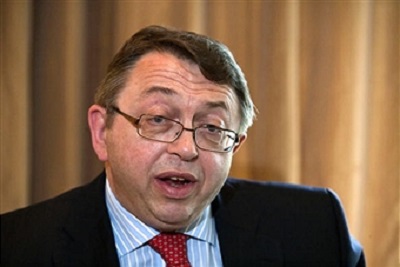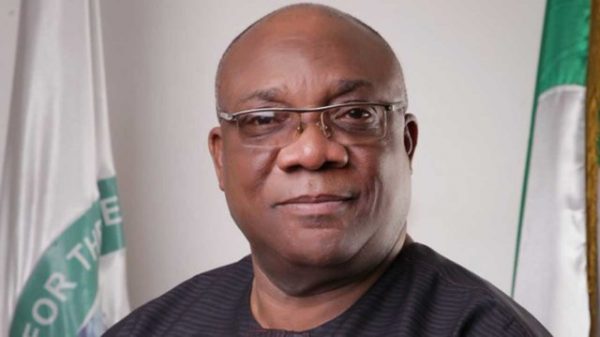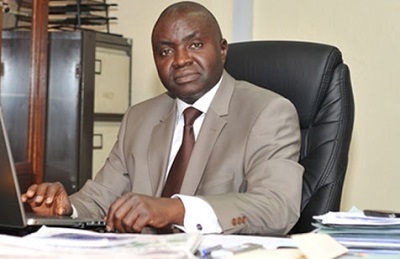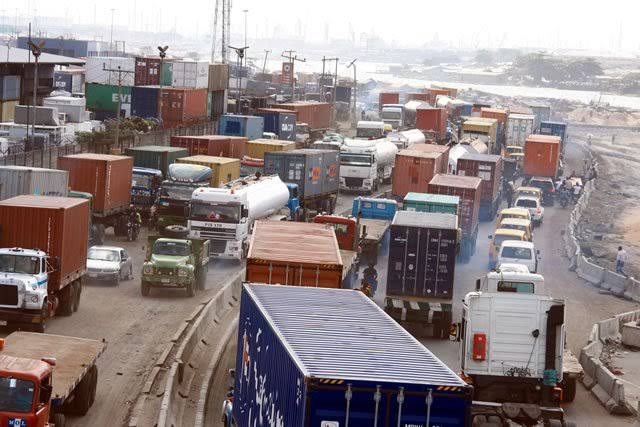Why Corruption Thrives In Nigeria- Clark, Former UK Transport Minister

- Identified as threat to foreign investment inflow
- Managing traffic congestion at ports
By Kenneth Jukpor
Corruption has continued to thrive in Nigeria and Africa in general because there are no effective deterrent measures and this could constitute a huge obstacle to developing robust sustainable transport infrastructure in Nigeria, a former United Kingdom(UK) Minister of Transport and Aviation, Mr. Paul Clark has said.
It has been observed that suspects or offenders, who most times go unpunished as a result of their status in the society end up becoming power brokers and role models especially when employment opportunities are created with the invested stolen funds.
Speaking with MMS Plus recently, the former UK Minister of Transport and Aviation, lamented that Nigeria’s lackadaisical approach to corruption, especially with regards to punishing offenders has been the bane of the nation’s anti-corruption drive.
Clark said, “Corruption does exist in every country but it is in various degrees. It is the responsibility of the enforcement agencies to ensure that when someone is caught, he or she is adequately punished in a clear and concise manner. The public has to get the message clear from the government through the enforcement agencies that corruption would not be tolerated in any form in the society. Until people understand that they would be caught and prosecuted, they would continue to breed corruption”
According to Clark, the only way to eradicate corruption is a top-downward approach, where a working formula should be developed and the right legislation provided to eradicate processes that allow corruption to thrive; and corrupt officers brought to book.
Clark, who was speaking at the recent Truck Transit Parks national conference in Abuja, stressed that the problem of corruption could militate against the growth of the nation’s transport sector, especially in areas that require the input of foreign investors.
“If investors think that there is a process that is open to corruption at a level that is unacceptable, that would frighten them and this can be a major problem for Nigeria’s transportation sector that still needs genuine investments in several aspects” Clark said.
Clark admitted that corruption is found in all countries at all levels of government agencies or private institutions but posited that it was a menace that has to be curbed because it could scare away genuine investors from any nation.
It was the massive spread of corruption in all aspects of the nation’s economy that led the Nigerian electorates to give President Mohammadu Buhari the mandate as their president, but how the anti-corrupt agencies have fared over the years remains a question begging for answer.
The two main anti-corrupt agencies; the Economic and Financial Crimes Commission (EFCC) and the Independent Corrupt Practices and other related offences Commission (ICPC) have always been busy going after corrupt politicians as well as the various heads of top private and public organizations, but where are the results? Neither EFCC nor ICPC has issued a comprehensive list of those sufficiently punished or convicted after several gruesome investigations, while it is believed that the anti-corruption war waged by these agencies are largely lop-sided.
In July 2016, the Attorney General of the Federation and Minister of Justice, Mr. Abubakar Malami, had written to the Chairman of ICPC directing the reopening of the cases of about 31 ex-governors for fresh probe and trial.
The list in Mr. Malami’s letter contained the names of Bukola Saraki, a former Governor of Kwara State; Godswill Akpabio (former Akwa Ibom State Governor), Ali Modu Sheriff (ex-Governor of Borno State), Orji Uzor Kalu (Abia); Chimaroke Nnamani (Enugu); Saminu Turaki (Jigawa); Sule Lamido (Jigawa); Joshua Dariye (Plateau); Ahmed Yerima (Zamfara); Gabriel Suswam (Benue); Martin Elechi (Ebonyi); Danjuma Goje (Gombe) and Murtala Nyako (Adamawa).
Others include Ikedi Ohakim (Imo); Obong Victor Attah (Akwa Ibom); Achike Udenwa (Imo); Abdullahi Adamu (Nasarawa); Gbenga Daniel (Ogun); Jolly Nyame (Taraba); Boni Haruna (Adamawa); George Akume (Benue); Rashidi Ladoja (Oyo); Attahiru Bafarawa (Sokoto) and Adebayo Alao-Akala, Usman Dakingari (Kebbi); Adamu Mu’azu (Bauchi); Peter Odili (Rivers), and Lucky Igbindedion (Edo).
According to The Punch, a former Governor of Delta State, James Ibori, who was convicted in the United Kingdom for fraud-related charges, was also on the list.
The AGF letter had defined high-profile cases as cases “involving alleged misconduct amounting to economic sabotage; involving complex financial transactions or property movement; involving any of the suspects, who is a politician, a public officer or judicial officer; and where the subject matter involves government or corruption of its official or involves the abuse of office.”
Part of the AGF’s letter to the ICPC, had indicated that the cases against some of the former governors were investigated some years ago but charges were never filed against them.
The letter partly read, “It is clear that some of these governors and other politically-exposed persons have not been charged to court despite the fact that the ICPC has concluded their investigations, concerning allegations levelled against them, for one reason or the other. It is the position of the present administration that all ex-governors, who the ICPC had long concluded investigations into the various allegations levelled against them, should be immediately prosecuted.”
Sadly, most of these former governors remain idols and role-models to many without any probe leading to their conviction despite the AGF’s call for the case files of the former state governors to be reopened.
When contacted to react to these issues, the Director of Public Enlightenment, ICPC, Mrs. Rasheedat Okoduwa said she was pressed with several official matters but she promised to address the issues this week.
“Please remind me by text on Monday to discuss it. I’m pressed for time on several official matters” she replied the MMS Plus correspondent in a text message.
Meanwhile, the former UK Minister also proffered solutions to resolving the traffic gridlock on the nation’s port access roads as he advised that the development of TTPs should take into consideration the creation of railways.
“One of the first things we did while I was Minister of Transport, was to encourage rail-freight. So, the development of TTPs should take into cognizance the creation of railways. This ensures that most of the goods are taken off the roads, reducing the traffic congestion on the port access roads. Although most of the cargo in the UK is still conveyed via the roads, getting a percentage of it off the road has been very important to the efficient transport system” Clark stated.
According to him, if Nigeria can get the TTPs to correspond with the railways, it should mark an important development in transportation for the country. However, he equally noted that it needs proper planning and a clear strategy.
“I know that Nigeria is doing a lot in developing the entire transport system. I think there is a significant and exciting future that can be developed for the Nigerian infrastructure programme that links the ports to the roads and railways. As you could have goods first moved out of the ports to certain points via railways and distribute with trucks to other locations within the country or the neighbouring countries” Clark added.







